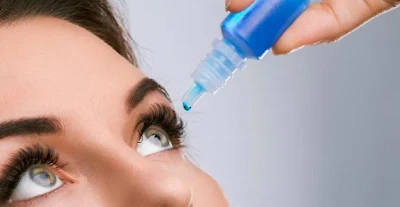Myopia and hyperopia are characterized by visual disturbances that can usually be corrected by wearing glasses or lenses. These visual defects most often cause eyestrain or headaches. Israeli researchers may have found a cure for these eye troubles. What is it about ?
First of all, what is myopia and hyperopia?
Myopia
When we are nearsighted, our view is clear when we approach an object but becomes blurred as we move away. If the correction is not started, there could be an impact on the view when driving a car or to recognize some people from a distance. Myopia occurs at any age and usually occurs during puberty.
Farsightedness
When you are hyperopic, the view from a distance is perfectly clear but becomes blurred as you approach an object. This sight defect can disrupt everyday tasks. However, do not confuse hyperopia with presbyopia. The first sight disorder is often congenital but it is mostly discovered after close vision becomes defective; thus, the hypermetropic sees evil from far and near. While the second concerns people who can not see closely but see very well from a distance. In general, a person realizes his hyperopia when he becomes presbyopic.
Drops that improve eyesight
According to "Ouest-France", Israeli researchers from the Shaare Zedek Medical Center and the Institute of Nanotechnology and Advanced Materials at Bar-Ilan University, specializing in ophthalmology, have developed eye drops, which can replace glasses in case of myopia or hyperopia.
This at least revolutionary discovery could correct the sight, repair the cornea of nearsightedness and farsightedness and many other defects of sight. However, clinical trials have only been tested on pigs.
Indeed, this experiment took two years to develop. Pigs that were used as guinea pigs and diagnosed with refractive errors in the eyes were clinically tested by instillation of nanoparticles.
This experiment was characterized by the introduction of a drug solution, in the natural conduit of the eye to disinfect and treat it. Which led to a considerable improvement of the view.
Is it the end of glasses and lenses?
Nanodrops use nanotechnology to improve vision and can replace multifocal lenses. Thus, anyone with myopia or hyperopia could eventually see objects placed at different distances.
However, no frequency to which the eye drops should be used has yet been prescribed, especially since the tests on humans have not yet been done, they will probably see the light, soon. This is to determine if the substance presents no risk of toxicity to humans.
Nanotechnology already tested on humans?
The nanotechnology-based method has already been developed by researchers at the UCL Institute of Ophthalmology in London. Thus, eye drops for age-related macular degeneration have been tested in patients and have given satisfactory results.
Tips to improve your eyesight
In the meantime, the development of the famous eye drops to improve eyesight, you can follow some tips to protect you from macular degeneration.
Moisten your eyes, either by blinking them in an exaggerated way for 30 seconds, or by using artificial tears to protect their surface.
If you work daily with a screen, take a break every 30 minutes. Attach one object in the distance, then another to the right and left without turning your head.
Consume the blueberry; it contains anthocyanidins and vitamin C that improve vision by regenerating the retinal purple (photosensitive protein pigment).
Try the "Palming" which consists of putting the palms of both hands, in the form of shell, on your closed eyes for 2 to 3 minutes by not letting in any light.
Eat dark green vegetables such as spinach, green cabbage or peas and other vegetables containing vitamin A or C found in carrots and citrus fruits.


